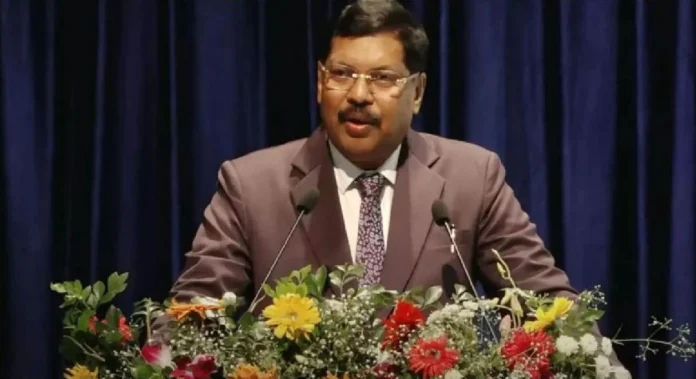Chief Justice of India Bhushan Ramkrishna Gavai on Friday said the Supreme Court could not dictate the High Courts to consider lawyers practising in the Apex Court for appointment as judges as neither was superior to the other and both were equal courts under the constitutional scheme.
Speaking during the function organised by the Supreme Court Bar Association to celebrate the 79th Independence Day, the CJI said the first call has to be taken by the concerned High Court where the judge was being appointed.
The Supreme Court Collegium could only propose the names and request the High Courts to consider the same. It was only after the satisfaction of the High Courts that the recommendations were made by the Apex Court.
The CJI, however, noted that the Supreme Court Collegium had recommended names of certain Apex Court lawyers for High Court judgeships and many such recommendations had been approved as well. The Collegium was in the process of recommending more such names, he added.
Terming the Independence Day as both a celebration and an act of remembrance, he recalled some of the historic events, including the 1855 Santhal Hul rebellion, the 1857 uprising, the Jallianwala Bagh massacre, and the Champaran Satyagraha. He highlighted the sacrifices made by thousands of people, including Rani Laxmibai and Birsa Munda, stating that they stood against foreign rule and exploitation, uniting various sections of society.
He further paid tribute to reformers like Jyotirao Phule and Savitribai Phule, stating that in the 19th century, they championed the cause of education for girls from marginalised communities, challenging caste hierarchies and societal hypocrisy. He also lauded the historic journey of the Santhal community, from leading the 1855 rebellion to having its daughter, President Droupadi Murmu, holding the highest constitutional office.
CJI Gavai, however, observed that building a just, equal and inclusive India remained an unfinished work.
Quoting Father of the Nation Mahatma Gandhi, he said the best way to find oneself was to lose oneself in the service of others. The CJI stressed on the relevance of the message in the current times, stating that it served as a moral compass for politics, governance and life.
He further said that it was the solemn duty of both the judges and lawyers to not only interpret the law, but actively uphold and defend the fundamental values of liberty, equality and fraternity, which formed the bedrock of the country’s democracy.
The CJI revealed that a new full-fledged flag post would be ready at the Supreme Court before November 24, 2025, when Justice Surya Kant would take over as the 53rd Chief Justice of India.
During the event, SCBA President Vikas Singh urged the CJI to consider lawyers practising in the Supreme Court for elevation as High Court judges. He further emphasised on creating a database of all eligible lawyers who could be considered for appointments in the higher Judiciary.
Attorney General R Venkatramani and Union Minister of Law & Justice Arjun Meghwal also graced the occasion.


